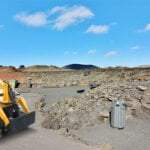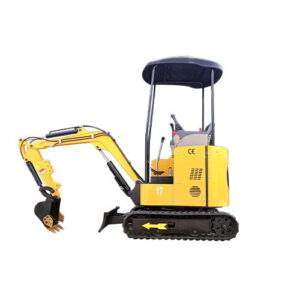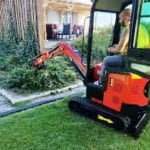How a Wood Chipper Can Help Reduce Waste
Introduction
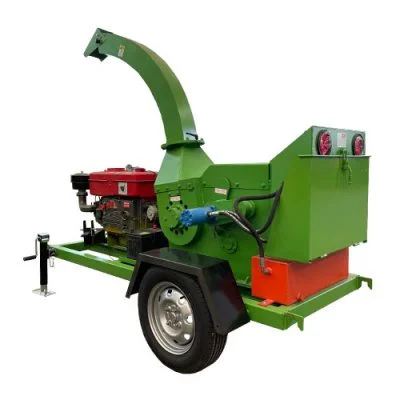
In an era where sustainability and efficient resource management are critical, finding effective ways to reduce waste is more important than ever. One powerful tool in this effort is a wood chipper. This versatile machine not only helps manage and process wood waste but also contributes to environmental conservation by transforming yard debris, branches, and other woody materials into valuable mulch or compost. In this comprehensive blog, we will explore how a wood chipper works, its benefits, and its role in reducing waste.
What is a Wood Chipper?
Definition and Function
A wood chipper is a mechanical device designed to reduce wood, branches, and other organic materials into smaller, manageable chips or mulch. This process is essential for recycling and repurposing organic waste, making it an important tool for landscapers, arborists, and homeowners.
-
Basic Components:
- Feeding Chute: Where the wood is fed into the chipper.
- Blades or Hammers: Mechanisms that shred the wood into chips.
- Discharge Chute: Where the processed chips are expelled.
Types of Wood Chippers
| Type | Description | Typical Use |
|---|---|---|
| Disk Chipper | Uses a rotating disk with blades to shred wood. | Suitable for large branches and trunks. |
| Drum Chipper | Features a rotating drum with multiple blades. | Ideal for processing a variety of wood sizes. |
| Mobile Chipper | Portable unit often mounted on a trailer. | Used for on-site wood processing in various locations. |
| Electric Chipper | Operated by electric power rather than gasoline. | Best for small to medium-sized tasks, ideal for residential use. |
Benefits of Using a Wood Chipper
Waste Reduction
A wood chipper helps in significantly reducing the volume of wood waste. By converting branches, leaves, and other woody debris into chips or mulch, it decreases the amount of waste sent to landfills.
- Benefit: Reduces landfill waste and associated disposal costs.
Resource Efficiency
The chips produced by a wood chipper can be repurposed as mulch or compost, enhancing soil quality and providing a sustainable alternative to chemical fertilizers.
- Benefit: Contributes to soil health and reduces the need for synthetic soil amendments.
Improved Yard Maintenance
Using a wood chipper allows homeowners and landscapers to manage yard debris efficiently. It makes clearing large amounts of branches and leaves easier and more manageable.
- Benefit: Streamlines yard maintenance and improves the appearance of outdoor spaces.
Cost Savings
By processing your own yard waste, you can save money on disposal fees and reduce the need to purchase commercial mulch or compost.
- Benefit: Provides a cost-effective solution for managing and utilizing organic waste.
Enhanced Safety
Properly managing yard debris and wood waste helps reduce potential hazards. Overgrown branches and piles of debris can be safety hazards, so processing them reduces the risk of accidents.
- Benefit: Creates a safer environment by minimizing trip hazards and potential fire risks.
Environmental Benefits
A wood chipper contributes to environmental conservation by promoting the recycling of organic materials and reducing the carbon footprint associated with waste disposal.
- Benefit: Supports environmental sustainability and reduces greenhouse gas emissions from landfills.
Versatility
Wood chippers come in various sizes and types, allowing for versatility in their application. Whether you’re managing residential yard waste or large-scale industrial debris, there’s a wood chipper suited to your needs.
- Benefit: Adapts to different types and volumes of wood waste, making it suitable for a wide range of tasks.
How to Choose the Right Wood Chipper
Selecting the appropriate wood chipper depends on several factors, including the type of material to be processed, the volume of waste, and the intended use. Here’s a guide to help you choose the right wood chipper:
Material Type and Size
Consider the type of wood and the maximum diameter of branches you need to process. Different chippers are designed for specific materials and sizes.
- Example: A drum chipper is ideal for handling large branches, while an electric chipper is better for smaller, residential tasks.
Power Source
Wood chippers can be powered by gasoline, diesel, or electricity. Choose a power source based on the scale of your work and available resources.
- Example: Gasoline or diesel-powered chippers are suitable for heavy-duty tasks, while electric chippers are quieter and more suitable for lighter work.
Portability
If you need to move the chipper frequently, consider a mobile or compact model that is easy to transport.
- Example: A trailer-mounted chipper offers mobility for large-scale yard work or tree removal.
Capacity and Efficiency
Evaluate the chipper’s capacity to process wood and its efficiency in converting waste into chips.
- Example: High-capacity chippers are ideal for large volumes of waste, while smaller models are suitable for occasional use.
Safety Features
Ensure that the wood chipper has necessary safety features such as guards, emergency shut-off switches, and proper safety instructions.
- Example: Safety features help prevent accidents and injuries during operation.
Table: Comparison of Wood Chippers
| Feature | Disk Chipper | Drum Chipper | Mobile Chipper | Electric Chipper |
|---|---|---|---|---|
| Processing Capacity | High | Variable | High | Low to Medium |
| Portability | Low | Medium | High | High |
| Power Source | Gasoline/Diesel | Gasoline/Diesel | Gasoline/Diesel | Electric |
| Noise Level | High | Moderate | Moderate | Low |
| Maintenance | Moderate | Moderate | Moderate | Low |
| Cost | High | High | High | Low to Medium |
Applications of Wood Chippers
Residential Landscaping
Homeowners use wood chippers to manage yard waste, including branches, leaves, and shrubbery. The resulting mulch can be used to enhance garden beds and pathways.
- Application: Ideal for maintaining a clean and attractive yard while recycling organic waste.
Commercial Landscaping
Landscaping professionals use wood chippers to handle large volumes of green waste from commercial properties, parks, and public spaces.
- Application: Efficiently processes debris from large-scale landscaping projects and tree maintenance.
Forestry and Tree Removal
In forestry operations, wood chippers are used to process felled trees and branches into chips for use as biomass fuel or mulch.
- Application: Supports sustainable forestry practices by recycling wood waste into valuable products.
Municipal Waste Management
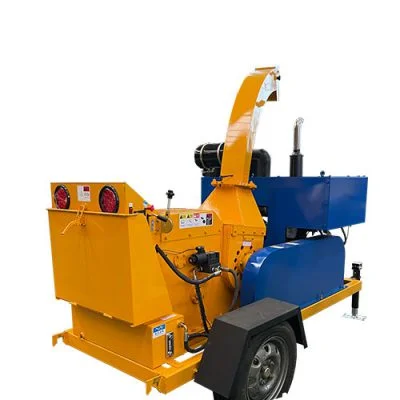
Municipalities use wood chippers to process organic waste collected from public spaces and residential areas, reducing the volume of waste sent to landfills.
- Application: Contributes to community waste reduction efforts and supports recycling programs.
Agricultural Uses
Farmers use wood chippers to process farm debris and woody materials into mulch or compost for soil enrichment.
- Application: Enhances soil health and fertility by recycling agricultural waste into useful organic matter.
Conclusion
A wood chipper is an invaluable tool for reducing waste and promoting sustainability. By transforming branches, leaves, and other woody materials into useful mulch or compost, a wood chipper helps manage yard debris, improves resource efficiency, and contributes to environmental conservation. Understanding the benefits and applications of wood chippers allows homeowners, landscapers, and municipalities to make informed decisions about waste management and recycling. With the right wood chipper, you can efficiently handle organic waste, support sustainable practices, and enhance the health and appearance of your outdoor spaces.
FAQ
Q:What types of materials can be processed with a wood chipper?
A:Wood chippers can process a variety of organic materials, including branches, leaves, twigs, and small logs. Some chippers are also capable of handling garden debris and woody shrubs.
Q:How often should a wood chipper be maintained?
A:Regular maintenance is essential for optimal performance. It is recommended to clean and inspect the chipper after each use and perform a thorough maintenance check at least once a year.
Q:Can a wood chipper be used for commercial purposes?
A:Yes, wood chippers are available in various sizes and capacities suitable for both residential and commercial use. Commercial-grade chippers are designed to handle larger volumes of waste and more intensive tasks.
Q:Are there safety considerations when using a wood chipper?
A:Yes, safety is crucial when operating a wood chipper. Always follow the manufacturer’s safety guidelines, wear appropriate protective gear, and ensure that the chipper is properly maintained and used according to instructions.
Q:What is the difference between a drum chipper and a disk chipper?
A:Drum chippers use a rotating drum with multiple blades to shred wood, offering versatility for different wood sizes. Disk chippers use a rotating disk with blades and are typically used for larger branches and trunks. Both types have their own advantages based on the type of material and processing needs.

